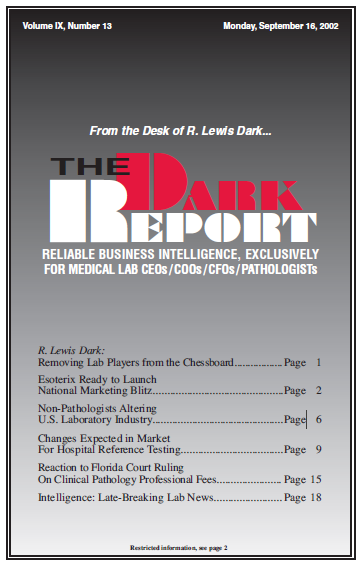CEO SUMMARY: Reimbursement for clinical pathology professional services is under attack in a variety of ways throughout the United States. Recently a Florida Court of Appeal added a new court ruling to the growing body of legal decisions on this topic. Careful study of the ruling shows that the court affirmed the role of the […]
To access this post, you must purchase The Dark Report.


